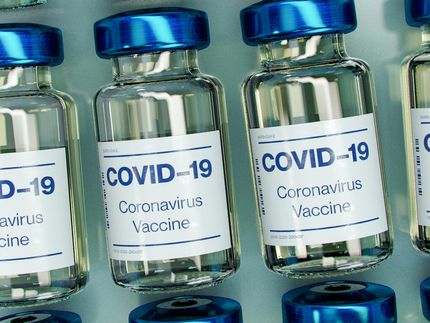With “Swarming AI” Against COVID and Other Diseases
Network of German research institutions uses pioneering artificial intelligence technology to analyze distributed data
Advertisement
Several German research centers, universities and university hospitals intend to jointly evaluate decentralized data on Covid-19 by leveraging artificial intelligence (AI). Their approach is based on “Swarm Learning”, a novel AI technology that allows distributed data pools to be analyzed while fully complying with data protection requirements. DZNE is coordinating the three-year research project. The Volkswagen Foundation is funding it with five million euros. Experts in scientific ethics will be involved in this initiative, which aims to pave the way for an international research network and infrastructure to better respond to pandemic developments.
Medicine and research are producing more and more data, resulting in diseases and the underlying processes being captured in ever greater detail. In the maze of this information, the hope is to find keys to new, personalized therapies that can be better tailored to individual patients than conventional treatments. This is a challenge in more ways than one. “Analyzing large amounts of data requires sophisticated computer science methods, particularly from the toolbox of artificial intelligence. At the same time, it is not so easy to harmonize the processing of biomedical data with questions of ethics and data protection. This applies in particular, if the data is not available centrally. Under such circumstances they are difficult to access. This is because data protection and data sovereignty place strict limits on the exchange of biomedical data across locations or even national borders,” says Prof. Joachim Schultze, speaker of the research consortium and Director of Systems Medicine at DZNE. “In our project, we are pursuing an elegant solution using Swarm Learning. We have already successfully tested this technology in pilot studies and now we aim to put it into practice. We have chosen COVID breakthrough infections as an application example. In other words, we want to understand why some people fall ill with coronavirus despite being vaccinated.”
A network across Germany
Experts from Berlin, Bonn, Giessen, Hamburg, Homburg, Cologne, Munich and Saarbruecken are involved in the project. “In the course of the COVID-19 pandemic, the members of our consortium have made important contributions to understanding the immune response to the coronavirus. We are now bringing together this experience, expertise and local research infrastructure,” says Prof. Leif Erik Sander, co-speaker of the project consortium and Director of the Department of Infectious Diseases and Critical Care Medicine at Charité - Universitätsmedizin Berlin. “Most breakthrough COVID-19 infections have a rather mild course. Recently, however, we have again been treating an increasing number of patients with COVID-19 in the intensive care unit. Therefore, we would like to find out why a severe course of the disease occurs again in certain cases and whether the immune response differs from the primary infection. Most importantly, we want to investigate how treatment can be further improved.” To get to the bottom of the matter, around 800 individuals who have been vaccinated against COVID-19 and still fall ill will be examined across various sites. “In order to quickly enroll a large number of study participants, we work collaboratively. We take samples of the blood, samples from the nasopharynx and lungs and analyze them using various high-resolution techniques. Their capabilities extend down to the level of individual immune cells and molecules. This provides a detailed picture of the immune response, which shows us how the organism deals with the virus in different disease courses,” says Sander.
Learning in a swarm
Swarm Learning comes into action when evaluating the resulting mass of data. The technique was developed by DZNE in collaboration with IT company Hewlett Packard Enterprise (HPE) and is based on a combination of AI and blockchain technology. The punch line of Swarm Learning is that it harnesses large amounts of distributed and potentially personal data without exchanging the actual data: It remains local and confidential in line with data protection. “All partners who contribute their knowledge to the swarm can learn from each other without having to pass on sensitive information. This is because no genuine data is shared, but rather insights derived from this data. This simplifies scientific collaborations and makes them more effective,” says Joachim Schulze. In test runs, his team was able to demonstrate the efficiency of the method using data derived from blood and X-ray images of the lungs. “Another advantage of Swarm Learning is that all members of the swarm have the same rights and benefit equally. Unlike other technologies that also process distributed data, there is no central authority that controls what happens and the results. Swarm Learning allows the potential of artificial intelligence and big data to be harnessed in a democratic way.”
Ethical aspects
The use of AI in medicine is the subject of public debate. The research project is addressing this issue. “We will reach out to advocate groups for people affected by COVID and involve professionals with ethical expertise right from the start,” says Prof. Alena Buyx, member of the research consortium and Professor of Ethics in Medicine and Health Technologies at the Technical University of Munich. “Far too often, ethical and social aspects are only considered at the conclusion of technical innovations. The balance between technical feasibility and social benefit should be weighed up beforehand. Our research consortium is addressing this debate.”
Standardized protocols
One of the first tasks for the members of the consortium is to develop standardized measurement protocols and data processing methods. “All project partners must generate and process data in the same way. Only then can findings be compared across locations. This is a prerequisite for feeding them into the swarm,” says Joachim Schultze. “For example, there are various protocols for processing blood samples and isolating individual immune cells from them. There are also numerous options for processing the raw data as it comes directly from the measuring devices. We will therefore develop standardized procedures that are really applicable in everyday laboratory work.”
Global perspectives
With a view to future developments, a certain degree of fault tolerance and the definition of minimum technical requirements are also important, says Schultze. “We see our consortium as a nucleus for larger networks that make use of Swarm Learning. However, our consortium is relatively small and we want to make this technology more widely available, which would open up a global treasure trove of data for research and medicine. We therefore need to ensure that our measurement and data protocols are also practicable on a larger scale and in other countries, even if the technical infrastructure differs from place to place.” International partners are therefore set to join the project. Talks are already underway with experts in other European countries, the USA, Japan and Australia. Clinics in African countries are also to be involved. “We aim to test whether Swarm Learning can form the backbone of an international research and rapid response system. If the concept for COVID-19 proves successful, we could address other infectious diseases. That would be a trump card in the fight against pandemics. Moreover, the use of Swarm Learning is also conceivable for other diseases that occur globally. Such as Alzheimer’s or Parkinson’s,” says Joachim Schultze.
Members of the research consortium
- Prof. Dr. Marylyn Addo, University Medical Center Hamburg-Eppendorf
- Prof. Dr. Alena Buyx, Technical University of Munich
- Prof. Dr. Susanne Herold, University Hospital of Giessen and Marburg
- Prof. Dr. Florian Klein, University Hospital Cologne
- Prof. Dr. Percy Knolle, Technical University of Munich
- Prof. Dr. Leif Erik Sander, Charité - Universitätsmedizin Berlin, co-speaker of the consortium
- Prof. Dr. Martina Sester, Saarland University Hospital
- Prof. Dr. Fabian Theis, Helmholtz Munich
- Prof. Dr. Birgit Sawitzki, Charité - Universitätsmedizin Berlin
- Prof. Dr. Joachim Schultze, Deutsches Zentrum für Neurodegenerative Erkrankungen (DZNE) and University of Bonn, speaker of the consortium

























































